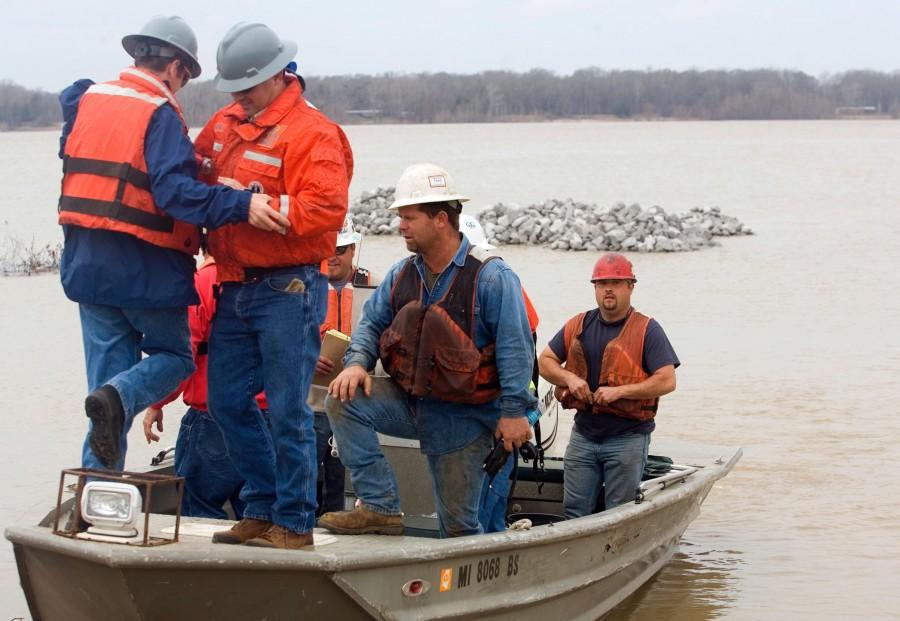The Coast Guard said Tuesday that about 7,000 gallons of crude oil were unaccounted for aboard a leaking barge that had rammed a railroad bridge near Vicksburg, Miss. on the Mississippi River, which remained closed for a third day as crews slowly pumped out oil.
Petty Officer 3rd Class Jonathan Lally said it’s not clear that all of the 7,000 gallons leaked into the river since the collision early Sunday. Some of it, he said, could have seeped into void spaces inside the barge.
Lally said a plan to pump oil from the stricken barge onto another barge – a process known as lightering – had been approved but it was unclear how long that would take or when the river might reopen to vessels. He said the other barge was in route.
Environmental impact, Lally said, has been minimal because a boom is containing the leak around the barge and the leak is slow.
On Tuesday, tugs were pinning the ruptured barge to the bank on the Louisiana side of the river, A few workers could be seen walking on top of the stricken barge.
An orange boom bobbed in the water just downstream and another boom was set up as a second line of defense to keep the oil from spreading.
The economic impact is another matter.
At least 54 vessels, including towboats and barges, were idled Tuesday on the closed 16-mile stretch of one of the nation’s vital commerce routes.
Vessel traffic tends to be less in January than during peak harvest season, when grain from the U.S. heartland is shipped south to be loaded onto massive ships near New Orleans.
“The Coast Guard advised our hazardous materials unit that the river would be closed indefinitely to all traffic,” Lt. Julie Lewis of the Louisiana State Police said.
About 168.4 million tons of cargo a year moves along the Mississippi River between Baton Rouge, La., and the mouth of the Ohio River, carried by nearly 22,300 cargo ships and 162,700 barges, according to the Army Corps of Engineers. About 3.6 million tons of cargo is handled annually by the port of Vicksburg.
When low water threatened to close the river earlier this month, the tow industry trade group American Waterways Operators estimated that 7.2 million tons of commodities worth $2.8 billion might be sidelined over the last three weeks of January.
Salt destined for northern roads is moving upriver in January, said spokeswoman Ann McCulloch. “We’re still moving corn, soybeans and grain, but also coal and petroleum, stone, sand and gravel,” she said Tuesday.
Barges carry 20 percent of the nation’s coal and more than 60 percent of its grain exports, according to the group.
Crews have been working around the clock to contain and remove oil since the barge, owned by Corpus Christi, Texas-based Third Coast Towing LLC, struck a railroad bridge and began leaking early Sunday. The company has refused to comment on the incident.
Severe weather is expected to sweep through the area late Tuesday and on Wednesday could shut down operations for a time, authorities said.






